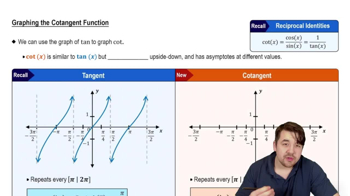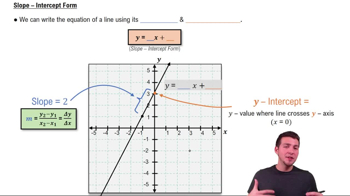Finding One-Sided Limits Algebraically
Find the limits in Exercises 11–20.
limh→0− (√6 − √(5h² + 11h + 6))/ h
 Verified step by step guidance
Verified step by step guidance Verified video answer for a similar problem:
Verified video answer for a similar problem:



 5:21m
5:21mMaster Finding Limits by Direct Substitution with a bite sized video explanation from Patrick
Start learning